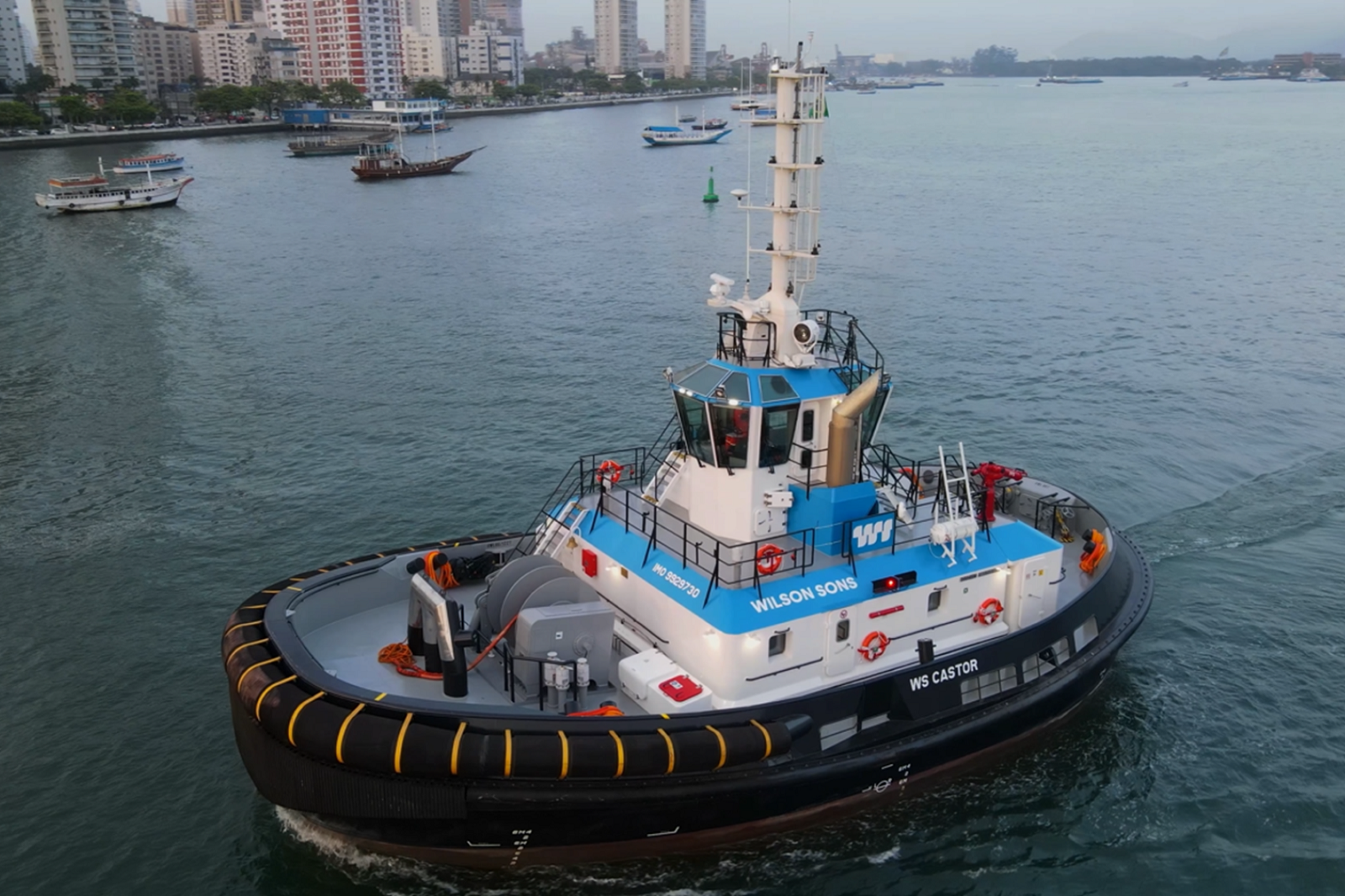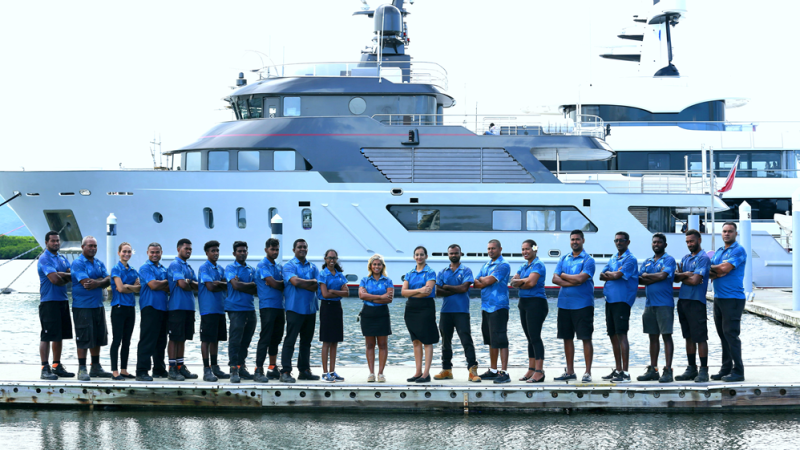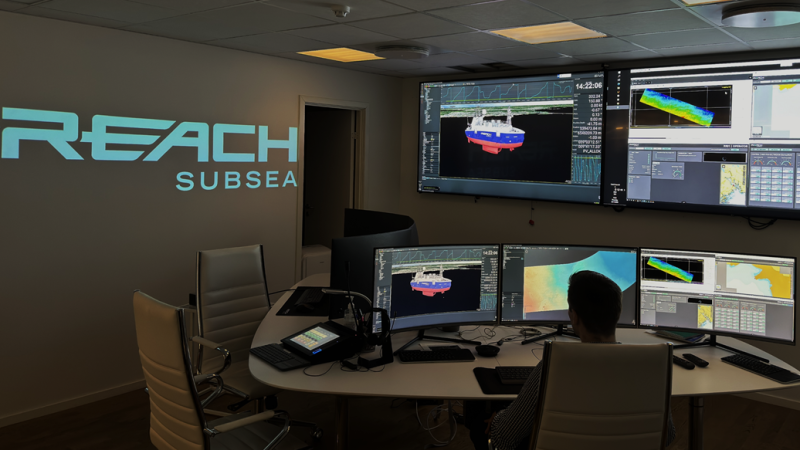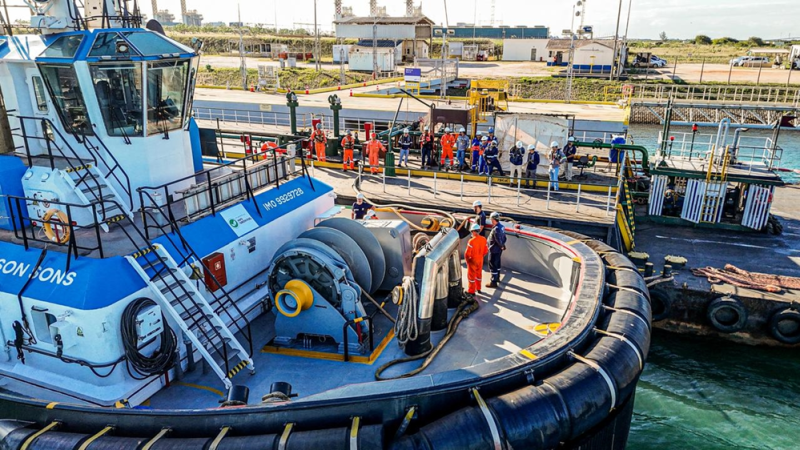Wilson Sons, a leader in port and maritime logistics in Brazil, started operating its new powerful and more sustainable tugboat “WS Castor”.
The tug is the fourth in a series of six being built at the company’s shipyards in Guarujá, São Paulo. “WS Castor” will operate in the port of Santos, the largest in Latin America. The tug is capable of attending the berthing and unberthing of the new-generation 366m LOA vessels expected to operate in this port.
Since July 2022, three tugs have been delivered (“WS Centaurus”, “WS Orion” and “WS Rosalvo”). The other two will be baptised in 2024. This shipbuilding project is funded by BNDES through the Merchant Navy Fund (FMM). The four new tugs are the first in Brazil following the IMO TIER III standard established by the International Maritime Organization, which attests to the reduction of up to 70% of nitrogen oxide. This standard is only required in emission-controlled areas, such as in some regions of North America and Europe. The hull design, by Damen Shipyards (RSD 2513), helps to reduce greenhouse gas emissions and consumes about 14% less fossil fuel compared to other tugs with the same bollard pull.
The twin fin design improves seaworthiness and increases drag capacity in manoeuvres, which ensures less fuel consumption and, consequently, lower emissions. With more than 90 tons of bollard pull, the new tugs are the most powerful ones operating in Brazil. The tugs are 25-metres long and 13-metres wide. They are equipped with fire-fighting certification (Fi-Fi 1), which delivers a flow rate of 2,400 m3 of water per hour. Besides, they operate fore and aft with the same efficiency, and can be used in both port manoeuvres as well as in ocean towage.
“WS Castor, with cutting-edge technology, adds power to our fleet of more than 80 vessels, present in more than 40% of all berthing manoeuvres in Brazil. This helps us make a positive impact on society and industries around the world, allowing the flow of international trade to take place with safety, sustainability and operational efficiency. The other three tugs are currently operating in busy ports attending larger ships. Since they came into operation, they have performed more than 1,500 manoeuvres, with high performance in the ports where they are operating”, said Rodrigo Bastos, Operations director of the Towage division at Wilson Sons.
“WS Centaurus” and “WS Orion” operate in the port of São Luís, Maranhão, performing berthing and unberthing manoeuvres at the Ponta da Madeira, Itaqui and Alumar terminals, attending large vessels transporting up to 400,000 tons of export cargo. In Ponta da Madeira, they attend ships carrying iron ore. In the Port of Itaqui, the tugs attend ships carrying, for example, diesel, corn, soy, fertilisers and paper pulp.
“WS Rosalvo” operates in the Port of Açu, in São João da Barra, in the north of the State of Rio de Janeiro, in the mining and offshore energy industry.
About Wilson Sons
Wilson Sons is the largest port-shipping logistics operator in Brazil, with over 185 years of experience. The company operates across Brazil and offers complete solutions to more than 5,000 clients, including shipowners, importers and exporters, the offshore energy industry, renewable energy projects, agribusiness corporations, and other players in different businesses. Learn more at: https://www.wilsonsons.com.br/en/
Press Relations
Danthi Comunicação Integrada
Gustavo Villela — gustavo.villela@danthi.com.br / +55 21 99124 5158
Sérgio Costa — sergio@danthi.com.br / +55 21 99145 3644







